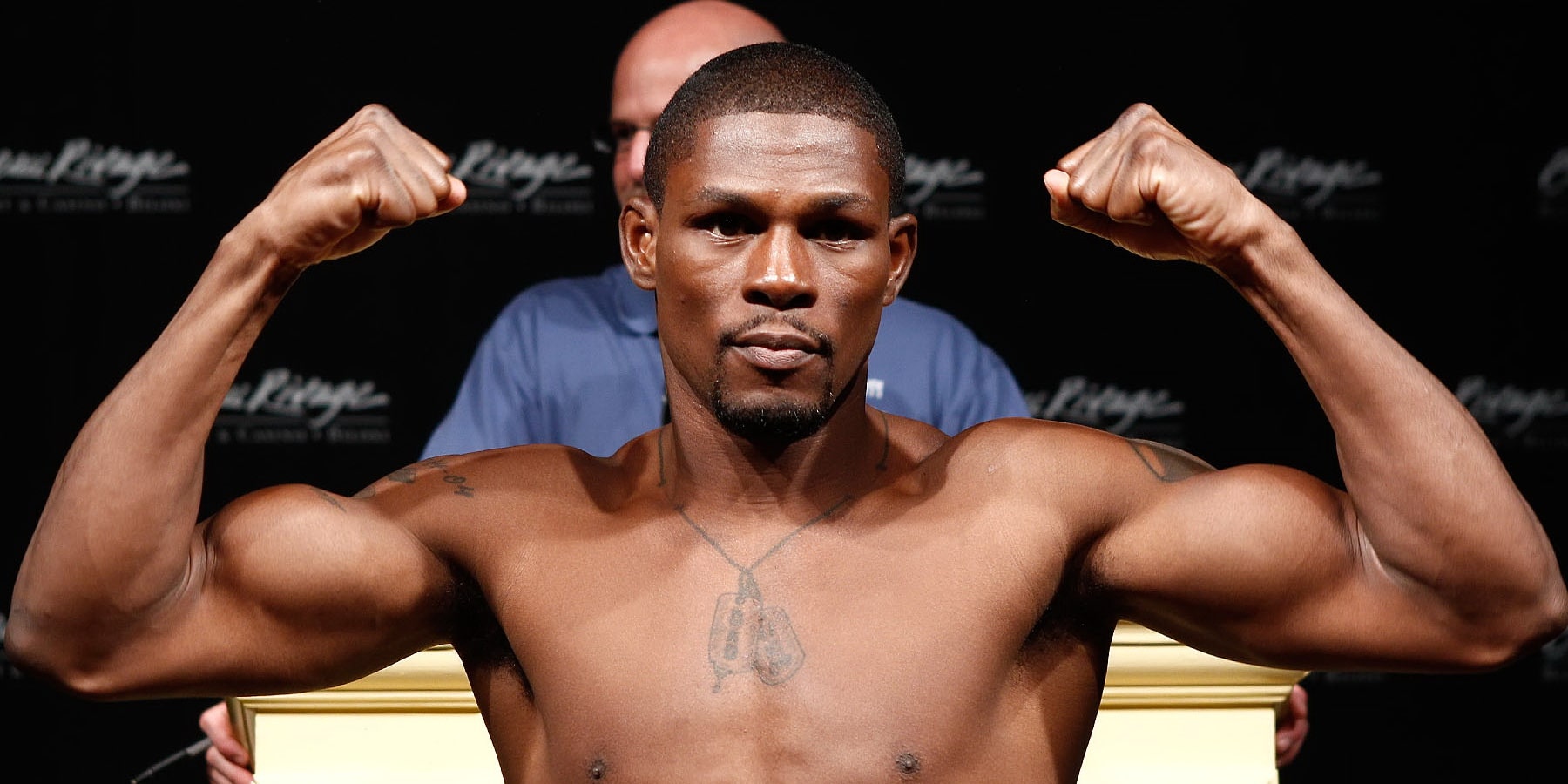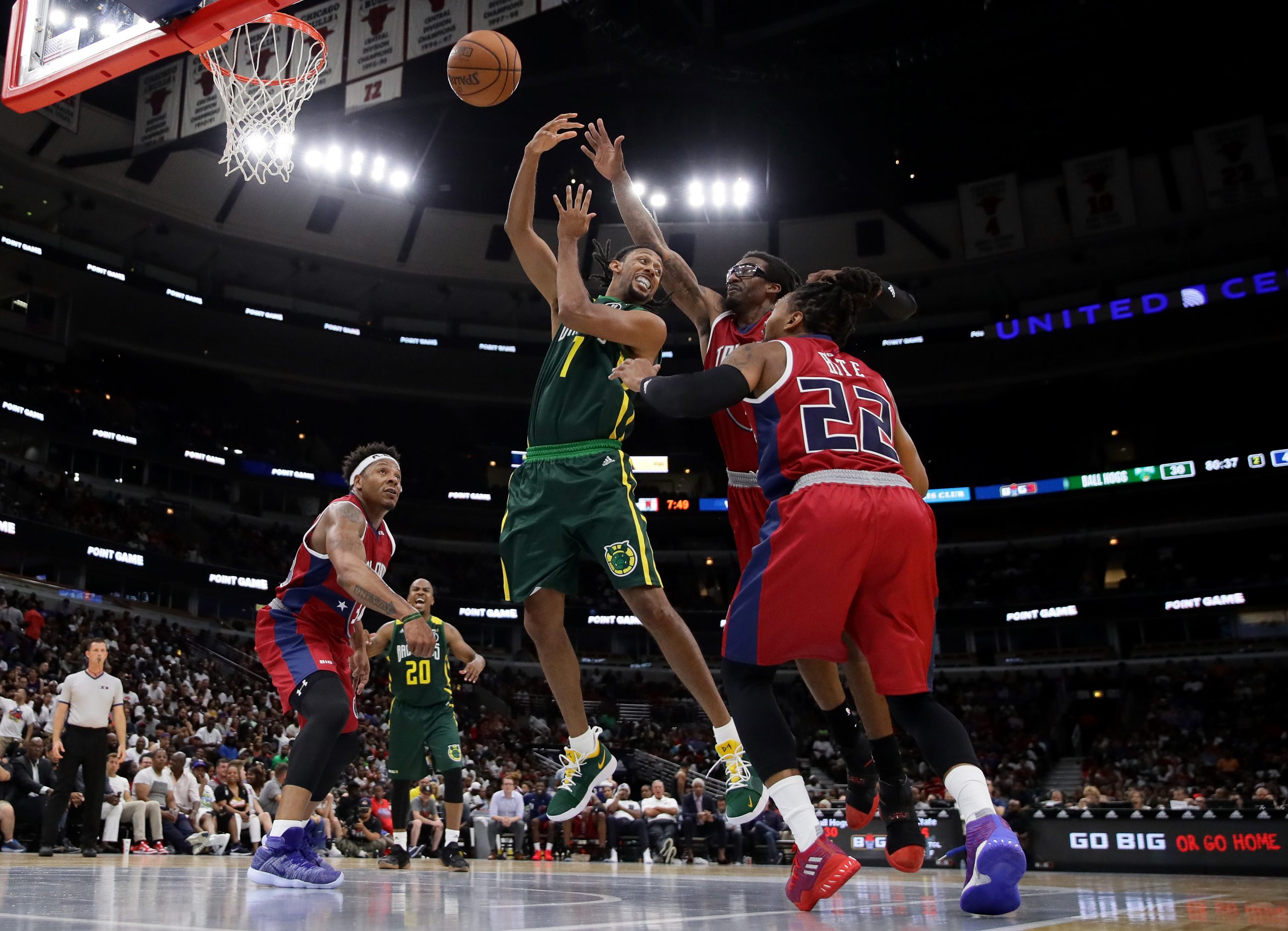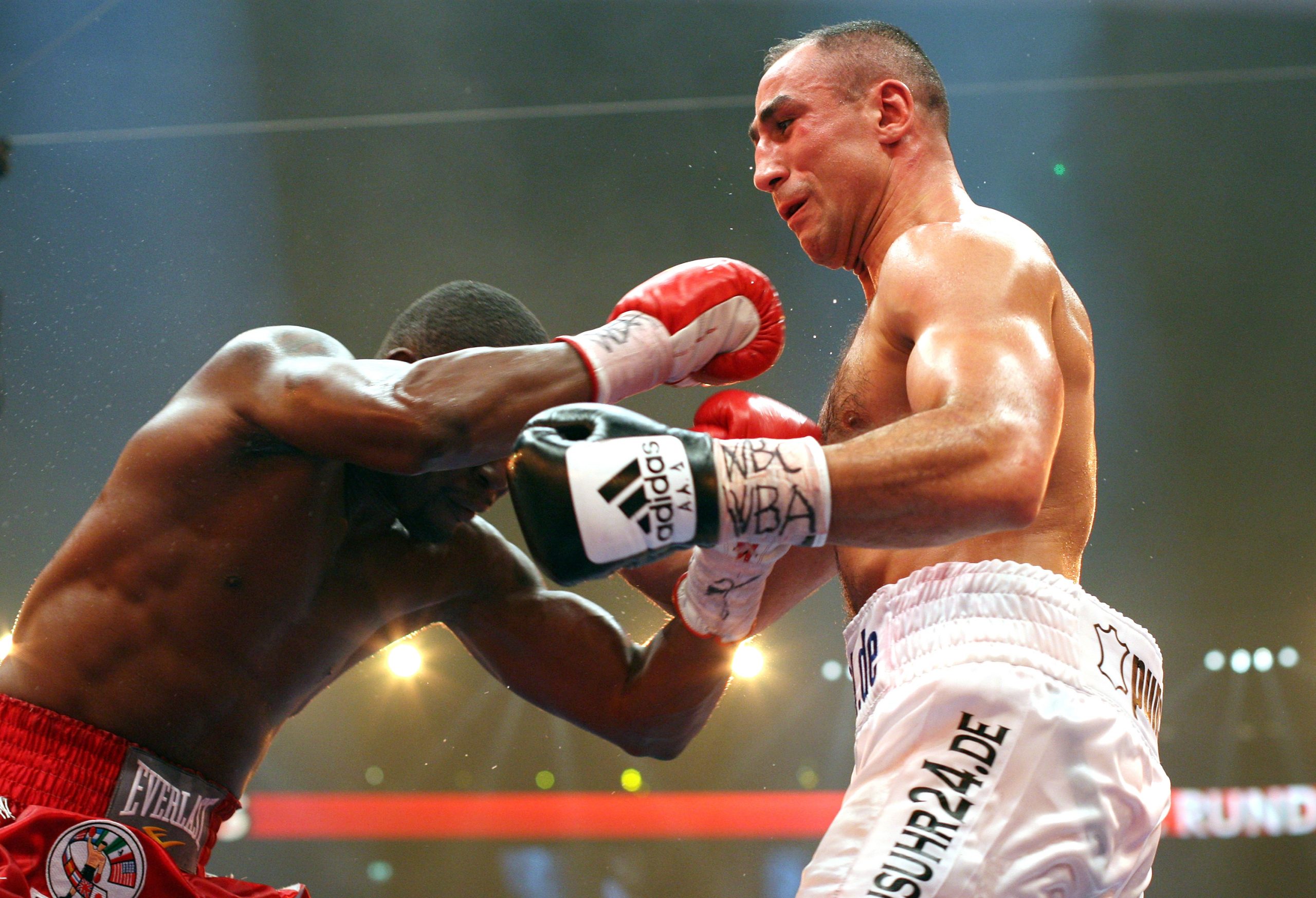Jermain Taylor Boxer Net Worth: Unpacking A Champion's Financial Journey
Many folks wonder about the financial standing of famous athletes, and it's quite natural to feel curious about how much a boxing champion like Jermain Taylor might have accumulated over his career. We often see them in the spotlight, winning big fights, and it makes us think about the money involved. So, a lot of people are interested in the details of Jermain Taylor boxer net worth, which is a big topic for many sports fans.
Now, it's worth noting, in some respects, that the information you provided talks about a different "Jermain" altogether. That text mentions a Jermain who won many basketball games and state championships, joining a hall of fame, and also details about Bank of America credit cards. That's quite interesting, but it's not about the boxing champion we're here to discuss. This article, instead, will focus on Jermain Taylor, the acclaimed boxer, and his financial picture, drawing on general knowledge about professional boxing careers and earnings.
We'll take a closer look at what goes into a boxer's financial life, from the money they earn in the ring to the various costs and challenges they face. It's a complex picture, really, and understanding it gives us a better idea of what it means to be a top athlete. We'll explore his career earnings, the impact of big fights, and what shapes a boxer's wealth. You know, it's a journey that's often more than just about the fight purses.
Table of Contents
- Jermain Taylor: A Brief Look at His Life
- Personal Details and Boxer Bio Data
- The Rise of a Boxing Star: Early Career Earnings
- Championship Glory and Peak Earnings
- Beyond the Ring: Endorsements and Other Income Streams
- The Unseen Costs: Expenses and Financial Challenges
- What Impacts a Boxer's Wealth?
- Life After Boxing: Managing a Champion's Funds
- Jermain Taylor's Financial Journey: A Look Ahead
- Common Questions About Jermain Taylor's Finances
Jermain Taylor: A Brief Look at His Life
Jermain Taylor, often called "Bad Intentions," is a well-known name in the boxing world. He really made a mark as a professional boxer, holding world titles in the middleweight division. His journey to the top was quite something, starting from humble beginnings and working his way up through the ranks. He became an Olympic medalist, which was a huge achievement, you know, before turning professional. This early success set him up for a career that would bring him a lot of attention and, of course, significant earnings.
His professional career saw him face some of the biggest names in boxing. He was known for his powerful punches and his athletic style. For instance, his fights against Bernard Hopkins were truly memorable, capturing the attention of many fans around the globe. Those were the kinds of contests that really put him on the map and showed everyone what he could do. So, his time as a fighter was filled with big moments and tough challenges.
Throughout his time in the sport, Jermain Taylor collected a number of impressive wins. He showed a lot of heart and skill in the ring. His career, like many in professional sports, had its ups and downs, but his accomplishments as a champion are certainly part of boxing history. He left a lasting impression on fans and fellow boxers alike, which is pretty cool, honestly.
Personal Details and Boxer Bio Data
Getting to know a bit about the person behind the gloves can sometimes help us understand their path. Here's a quick look at some general details about Jermain Taylor the boxer.
| Detail | Information |
|---|---|
| Full Name | Jermain Taylor |
| Nickname | Bad Intentions |
| Born | August 11, 1978 |
| Birthplace | Little Rock, Arkansas, USA |
| Nationality | American |
| Stance | Orthodox |
| Boxing Divisions | Middleweight, Super Middleweight |
| Professional Debut | 1999 |
| Olympic Medal | Bronze (2000 Sydney Olympics) |
The Rise of a Boxing Star: Early Career Earnings
When a boxer first starts out, their earnings are usually quite modest. They might get just a few thousand dollars, or even less, for their initial fights. This is a time when they are building their record and getting noticed. Jermain Taylor, like most aspiring champions, began his professional journey this way. He fought on undercards, working his way up the ladder, pretty much, to bigger opportunities. This period is crucial for development, both in skill and in building a fan base.
As a boxer starts to win consistently and gain recognition, their fight purses begin to grow. Promoters see their potential, and more eyes turn towards their matches. For someone with an Olympic medal, there's often a bit more hype from the start, which can mean slightly better initial deals. So, Taylor's early career saw a steady increase in his earnings as he moved from being a promising prospect to a contender. This phase is really about investing in oneself, you know, for future success.
The goal during these early years is to get to a point where you're fighting for titles. Each win adds to a fighter's value, making them more attractive for bigger events and, naturally, bigger paychecks. It's a grind, honestly, but it's how a boxer earns their way to the top. Jermain Taylor's early wins were vital stepping stones on his path to becoming a world champion, and they laid the financial groundwork for his later, much larger, earnings.
Championship Glory and Peak Earnings
The true financial rewards in boxing often come when a fighter reaches championship status. This is when the big money fights happen, particularly those involving pay-per-view. For Jermain Taylor, his most significant earnings came during his reign as the undisputed middleweight champion. His fights against Bernard Hopkins, for example, were huge events that generated considerable revenue. These kinds of bouts, you know, draw massive audiences and bring in very substantial purses for the fighters involved.
Becoming a world champion means a boxer can command much higher fees. They are no longer just fighting for a win; they are defending a title, which adds a lot to their market appeal. The purses for these championship fights can range from hundreds of thousands to several million dollars, depending on the opponent, the venue, and the overall buzz around the event. Taylor's peak earning years were undoubtedly during his time holding the middleweight belts, as a matter of fact, where he faced top-tier competition.
It's important to remember that a boxer's peak earnings are often concentrated within a relatively short period of their career. They have a limited window to make the most of their prime years. For Jermain Taylor, his undisputed title wins and defenses were the moments when his financial standing likely saw its most significant boosts. These were the times when he was truly at the top of his game, both in the ring and in terms of his earning potential, really.
Beyond the Ring: Endorsements and Other Income Streams
While fight purses are the main source of income for boxers, especially champions, endorsements and other ventures can add a lot to their overall wealth. A well-known boxer, particularly one with a good public image, can attract deals with various brands. These can include sports apparel companies, supplement brands, or even local businesses. Such partnerships provide an additional stream of money that doesn't depend directly on winning fights, which is pretty useful.
For a champion like Jermain Taylor, there would have been opportunities for endorsement deals during his peak years. Companies want to associate their products with successful athletes who embody strength and determination. These deals can sometimes be worth hundreds of thousands, or even millions, of dollars over their term. It's a way for athletes to leverage their fame outside of their sport, basically.
Beyond endorsements, some boxers might explore other income avenues, like appearances, speaking engagements, or even starting their own businesses. While details about Jermain Taylor's specific ventures outside of boxing are not widely publicized, it's common for athletes to try to diversify their income. This helps create a more stable financial picture, especially as their active fighting career winds down. You know, it's about making the most of their time in the spotlight.
The Unseen Costs: Expenses and Financial Challenges
It's easy to look at a boxer's large fight purse and think they're instantly rich, but there are many significant expenses that chip away at those earnings. Training camps, for example, can be very costly. A boxer needs to pay for coaches, sparring partners, nutritionists, and sometimes even rent special facilities. These costs are ongoing, whether a fight is scheduled or not, so they add up quickly, actually.
Then there are the management and promotional fees. Boxers typically pay a percentage of their earnings to their manager and promoter, which can be a substantial chunk. Travel expenses for fights, medical costs, and taxes also take a big bite out of the gross income. Taxes alone can be a huge percentage, especially for high earners. So, a fighter's net income is often much lower than the headline purse, you know, after all these deductions.
Beyond professional expenses, personal lifestyle choices can also impact a boxer's net worth. Living a lavish lifestyle, making poor investments, or facing unexpected legal issues can quickly drain even a large fortune. It's a sad truth that many athletes, not just boxers, face financial difficulties after their careers end, simply because they didn't manage their money well or faced unforeseen problems. This is why financial planning is so important for these athletes, in a way.
What Impacts a Boxer's Wealth?
A boxer's overall wealth is shaped by several key factors. The size of their fight purses is obviously a huge one. Top-tier fights, especially those on pay-per-view, generate the most money. The more popular a boxer is, and the more exciting their fights, the higher their earning potential. This is why building a compelling record and a strong fan base is so important, for instance.
Another big factor is the duration of their career and how consistently they fight. A boxer who has a long career with many significant fights will likely accumulate more wealth than someone whose career is shorter or less active. Health and injuries also play a role; if a boxer is sidelined frequently, their earning opportunities decrease. So, staying healthy and active is key to sustained income, pretty much.
Endorsement deals and smart financial management outside the ring also make a huge difference. A boxer who saves, invests wisely, and avoids unnecessary spending is far more likely to maintain their wealth after retirement. Conversely, poor financial decisions, unfortunately, can lead to significant losses. It's not just about how much you earn, but how you handle what you earn, you know, that really matters in the long run.
Life After Boxing: Managing a Champion's Funds
For many boxers, the transition from active competition to retirement can be a difficult period, both personally and financially. The regular, large paychecks from fighting stop, and they need to rely on their accumulated wealth or new income streams. This is where good financial planning during their active career becomes absolutely crucial. Having a solid plan for their money after the gloves come off can make all the difference, really.
Some former boxers move into coaching, commentary, or other roles within the sport. Others might pursue business ventures or charitable work. The key is to find new ways to generate income and stay engaged, while also managing their existing funds effectively. It's a time when the financial lessons learned, or sometimes not learned, during their fighting days truly come to the forefront. You know, it's a big adjustment for many of them.
The stories of boxers who made millions but ended up struggling financially are unfortunately common. This highlights the importance of having trusted financial advisors and making informed decisions about investments and spending. For someone like Jermain Taylor, who had a high-profile career, managing funds post-retirement would be a significant aspect of his financial journey. It's about securing a comfortable future after years of intense physical demands, frankly.
Jermain Taylor's Financial Journey: A Look Ahead
Understanding Jermain Taylor's financial journey involves looking at the highs of his championship earnings, the costs of being a professional boxer, and the challenges of post-career life. While specific figures for a boxer's net worth are often estimates and can change, it's clear that his most lucrative years were during his middleweight title reign. The financial picture for any boxer is complex, influenced by many factors beyond just fight purses.
His career showed us the incredible earning potential at the top levels of boxing, but also the need for careful financial stewardship. For fans interested in the lives of athletes, learning about these financial aspects can offer a fuller picture of their careers. It's a reminder that even champions face significant financial decisions and challenges, like anyone else, just on a much bigger scale. So, it gives us a better sense of what their lives are truly like.
If you're curious to learn more about how athletes manage their money or the financial side of sports, there's a lot of information available. You can always learn more about financial planning on our site, or perhaps explore this page about sports economics. Keeping up with financial news, for example, can give you insights into how public figures handle their wealth, and you might find it quite helpful. For more general information about sports finances, you could look up articles on a well-known boxing news site.
Common Questions About Jermain Taylor's Finances
People often have specific questions about a boxer's financial situation. Here are some common ones related to Jermain Taylor.
What were Jermain Taylor's biggest fight purses?
Jermain Taylor's largest fight purses likely came from his championship bouts, especially those against Bernard Hopkins. These were high-profile events that generated significant revenue from ticket sales and pay-per-view buys. The exact figures are not always public, but these types of fights are where the multi-million dollar paydays happen for top boxers. So, those were certainly his most lucrative moments, financially speaking.
How do boxers like Jermain Taylor manage their earnings?
Boxers usually manage their earnings with the help of financial advisors, accountants, and their management teams. They need to account for training expenses, taxes, manager fees, and personal living costs. Some invest in real estate or other businesses, while others might focus on savings. It's a complex process that needs professional guidance to ensure their wealth lasts beyond their fighting days. You know, it's about smart planning.
Do boxers earn money after they retire?
Some boxers do earn money after they retire, yes. This can come from past investments, endorsement deals that extend beyond their active career, or new ventures like coaching, commentary, or business ownership. However, for many, the primary source of income from fighting stops, making post-career financial planning very important. It really depends on how they managed their money during their fighting years, honestly.

Jermain Taylor Net Worth - Net Worth Post

Jermain Taylor Net Worth - Wiki, Age, Weight and Height, Relationships

Jermain Taylor Net Worth - Wiki, Age, Weight and Height, Relationships